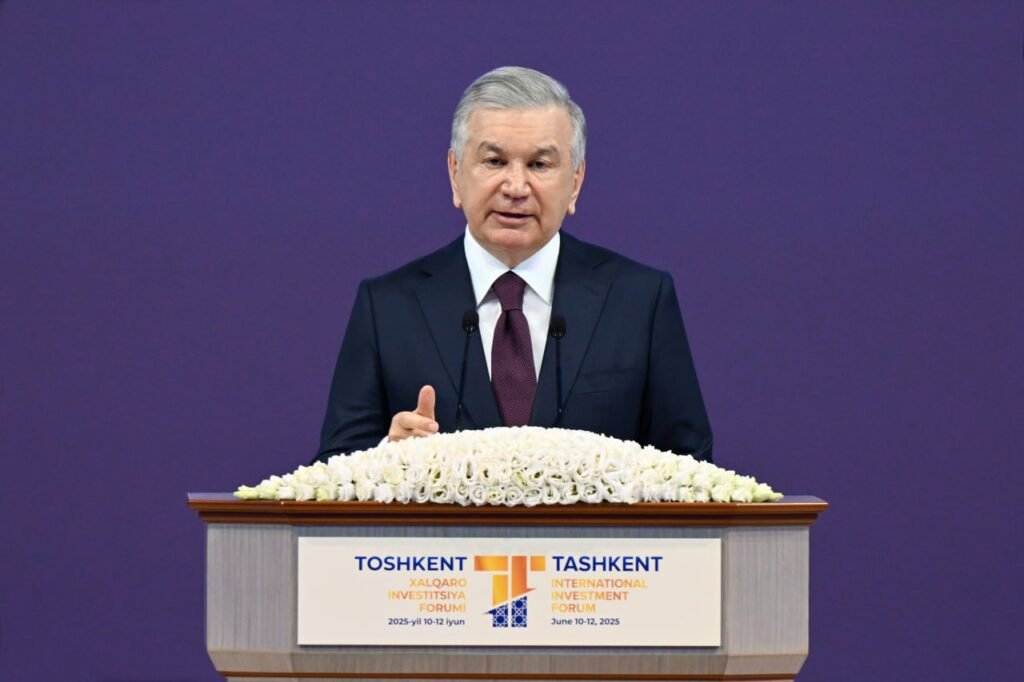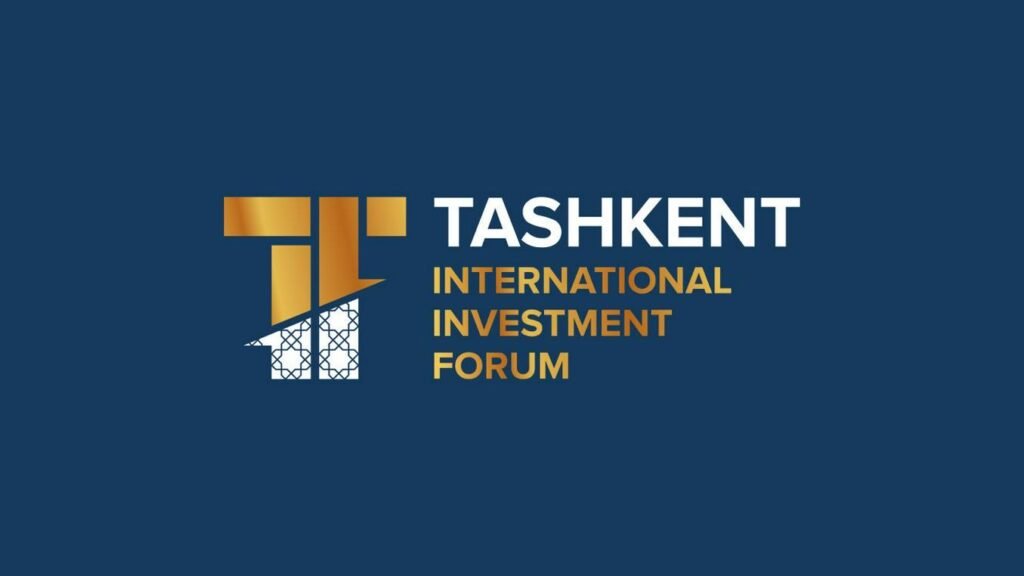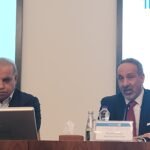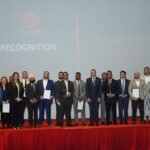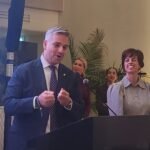Tashkent, 12 June 2025
Uzbekistan hosted the fourth edition of the Tashkent International Investment Forum (TIIF) from June 10 to 12, 2025, in its capital city, drawing a record 7,500 participants, including nearly 3,000 international delegates from around 100 countries, including State of Qatar. The event reinforced Uzbekistan’s growing role as a regional economic hub and a platform for global investment dialogue.
The forum opened with a large-scale exhibition of domestic investment projects and joint ventures, reflecting the country’s determination to attract foreign direct investment. Attendees included high-ranking officials and heads of state from Bulgaria, Slovakia, Kazakhstan, Kyrgyzstan, Tajikistan, Azerbaijan, and Turkmenistan. Leading international financial institutions such as the European Bank for Reconstruction and Development (EBRD) and the New Development Bank (NDB) were also present.
In his keynote address, Uzbek President Shavkat Mirziyoyev outlined the country’s ambitious economic transformation since 2016. He highlighted milestones such as a doubling of GDP, $35 billion in annual investments, and $27 billion in exports. Uzbekistan, he noted, has improved its global economic standing with a 48-place jump in the Index of Economic Freedom and upgraded credit outlooks from agencies such as S&P.
Mirziyoyev also addressed the need for international cooperation in tackling shared global challenges including climate change, security threats, and poverty, while expressing support for peaceful conflict resolution in Ukraine and Gaza.
Central to Uzbekistan’s development strategy is a pivot toward sustainable energy. Over $6 billion has been invested in green energy, and electricity output has risen to 82 billion kWh. The government targets 54% green energy by 2030 and plans to privatize regional power grids and attract $4 billion for infrastructure modernization.
To reassure investors, Uzbekistan is rolling out a “national regime” granting foreign investors the same legal rights as domestic businesses, streamlining administrative processes, and enhancing legal protections.
Regional integration and connectivity featured prominently in forum discussions. Leaders emphasized the significance of the “Middle Corridor,” a key transcontinental trade route linking Asia and Europe. Countries like Bulgaria, Slovakia, and Kazakhstan underscored the importance of investing in digital infrastructure, logistics, and critical raw materials.
Speakers praised Uzbekistan’s geographic advantages and reform agenda, pointing to opportunities in sectors such as renewable energy, artificial intelligence, mining, and advanced manufacturing. TIIF 2025 highlighted Uzbekistan’s long-term goal to build a $200 billion economy by 2030 under the “Uzbekistan-2030” Strategy.
Qatar Engages in Strategic Dialogue and Partnerships
Among the participating countries, Qatar played a prominent role at TIIF 2025, signaling its growing interest in Central Asian markets. The Qatari delegation was led by Dr. Ahmad bin Mohammed Al Sayed, Minister of State for Foreign Trade at the Ministry of Commerce and Industry.
Qatar’s presence reflected its broader foreign trade strategy aimed at deepening ties with emerging economies and fostering cooperation in high-impact sectors. During the forum, Dr. Al Sayed held bilateral meetings with several senior officials, including Uzbekistan’s Minister of Investment, Industry and Trade, HE Laziz Kudratov; Tajikistan’s Minister of Economic Development and Trade, HE Zavqi Zavqizoda; and Azerbaijan’s Deputy Minister of Economy, HE Elnur Aliyev. These discussions focused on expanding trade and investment partnerships in priority sectors.
The Qatari delegation also toured the accompanying investment exhibition, which featured over 90 companies across vital industries such as petrochemicals, pharmaceuticals, engineering, construction materials, and food processing. The visit provided valuable insights into Uzbekistan’s rapidly developing industrial landscape and areas for potential collaboration.
TIIF 2025 emphasized critical themes including digitalization, SME growth, investor protection, legal modernization, and green energy. It also marked the introduction of an official investment exhibition into the forum's core program, showcasing Uzbekistan’s business readiness and innovation potential.
Since its inception, over the past three years, the forum has served as a platform for signing 357 investment agreements totaling US$ 44 billion. Of these, 57 projects have already been implemented, while construction and design work is underway on 263 others.
The Tashkent International Investment Forum 2025 thus reaffirms Uzbekistan’s status as a leading investment hub in Central Asia, bringing together a broad array of International participants to address current economic challenges and explore future opportunities.


